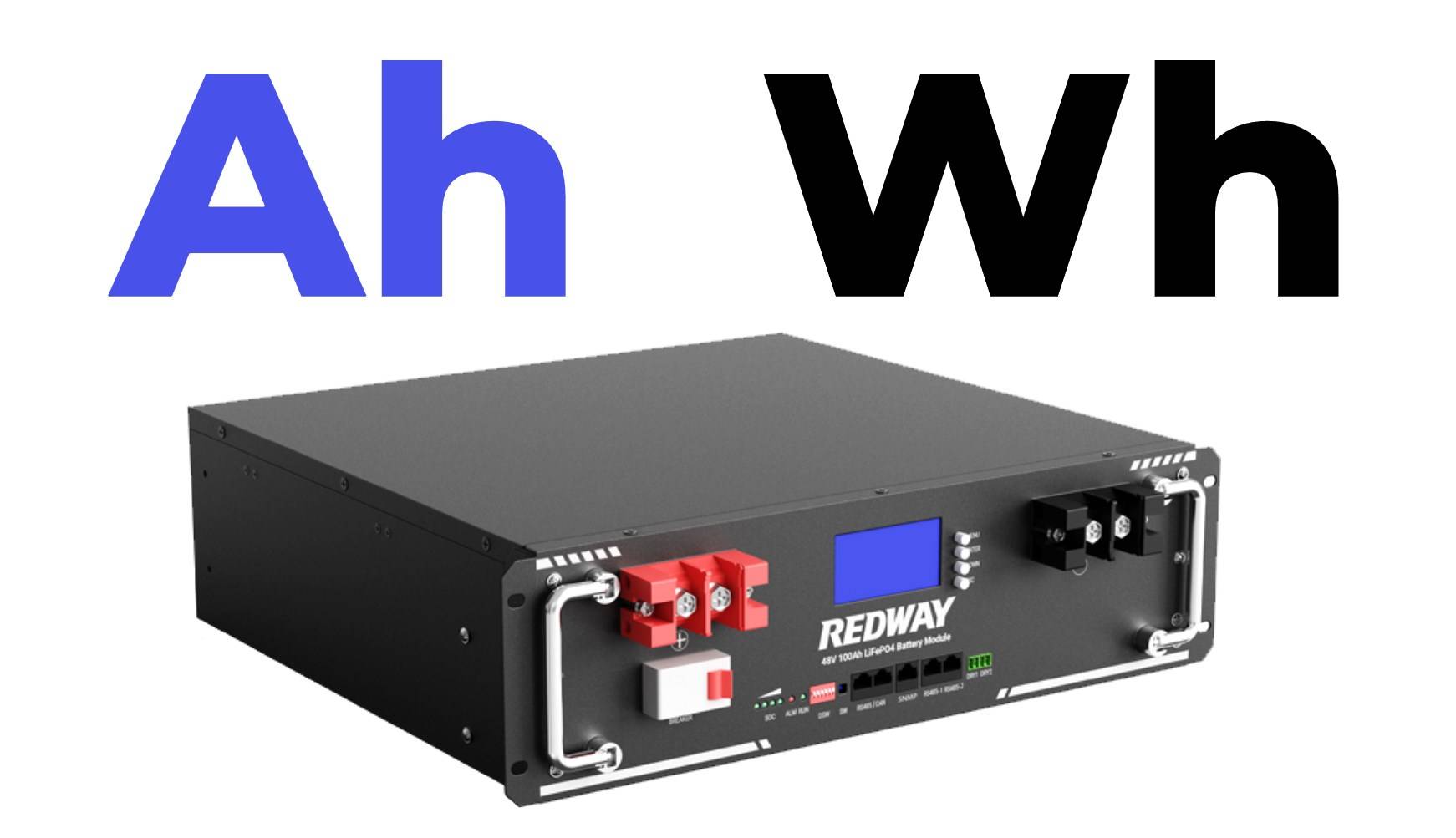Understanding amp hour (Ah) and watt hour (Wh) ratings is crucial for anyone working with batteries, especially in applications like solar energy systems, electric vehicles, and portable electronics. These ratings help determine how much energy a battery can store and deliver, influencing your choices for energy storage solutions. This guide explains these concepts, their relationships, and their importance.
What are amp hours (Ah)?
Amp hours (Ah) measure the capacity of a battery to deliver a specific amount of current over time. One amp hour indicates that a battery can provide one ampere of current for one hour. This rating is crucial for understanding how long a battery can power a device before needing to be recharged.
| Measurement | Description |
|---|---|
| 1 Ah | 1 ampere for 1 hour |
| 10 Ah | 10 amperes for 1 hour or 1 ampere for 10 hours |
What are watt hours (Wh)?
Watt hours (Wh) measure the total amount of energy a battery can store and deliver over time. It is calculated by multiplying the voltage (V) by the amp hour rating (Ah). For example, a 12V battery rated at 100Ah has a total capacity of 1200Wh (12V × 100Ah = 1200Wh).
| Measurement | Description |
|---|---|
| Calculation | Wh = V × Ah |
| Example | A 12V, 100Ah battery = 1200Wh |
How do amp hours and watt hours relate to each other?
Amp hours and watt hours are related through voltage. While Ah measures the charge capacity of a battery, Wh provides insight into the total energy available. To convert between them, use the formulas:
- Watt Hours = Amp Hours × Voltage
- Amp Hours = Watt Hours ÷ Voltage
This relationship allows users to understand both how long a battery can run and how much energy it can provide.
Why are amp hours important for battery capacity?
Amp hours are critical for determining how long a battery can power devices. For instance, if you have a device that requires 5 amps of current, a 100Ah battery would theoretically run that device for:
This metric helps users choose batteries based on their specific power needs.
How do watt hours affect energy consumption?
Watt hours indicate how much energy an appliance consumes over time. For example, if an appliance uses 100 watts and runs for 10 hours, it consumes:
Understanding this helps users manage their energy usage effectively.
What factors influence the choice between Ah and Wh?
Several factors influence whether to focus on amp hours or watt hours:
- Application Needs: For devices requiring specific current levels, Ah may be more relevant.
- Voltage Variations: Different systems may operate at various voltages, making Wh calculations essential.
- Battery Type: Some applications may prioritize total energy capacity (Wh), while others focus on discharge rates (Ah).
How do you calculate watt hours from amp hours?
To calculate watt hours from amp hours, you need to know the voltage of your system. The formula is:
For example, if you have a battery rated at 50Ah and operates at 12V:
What is the significance of voltage in these calculations?
Voltage plays a crucial role in determining both the total energy capacity of a battery (in watt-hours) and its ability to deliver power over time (in amp-hours). Higher voltage systems can achieve greater power outputs with lower current levels, which can be beneficial in reducing wiring costs and improving efficiency.
| Voltage Level | Impact on Capacity |
|---|---|
| Low Voltage | Higher current needed for same power output |
| High Voltage | Lower current needed; more efficient |
Buy Wholesale Battery Tips
For those considering wholesale purchases of batteries or related products, partnering with a reliable manufacturer like Redway Battery, known for its extensive experience in lithium battery production, is crucial. To make OEM orders effectively:
- Define your specifications clearly.
- Communicate regularly with the manufacturer throughout the process.
- Ensure compliance with safety standards.
Industrial News
Recent advancements highlight significant growth in demand for lithium-ion batteries as consumers increasingly seek sustainable solutions for energy storage. Innovations continue to enhance performance while reducing costs across various applications.
Redway Expert Views
“Investing in high-quality lithium-ion technology not only ensures reliable power but also supports environmental sustainability initiatives,” states an expert from Redway Battery.
FAQ Section
- What applications are best suited for LiFePO4 batteries?
They are ideal for electric vehicles, solar energy storage systems, backup power solutions, and industrial equipment. - How long can I expect a LiFePO4 battery to last?
Typically, these batteries can last between five to ten years depending on usage patterns and maintenance practices. - What should I consider when choosing a battery?
Consider capacity needs, size constraints, cost versus performance balance, and safety features.



